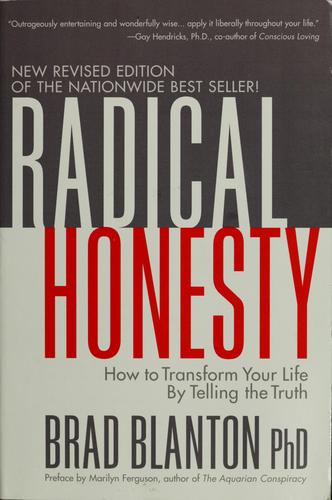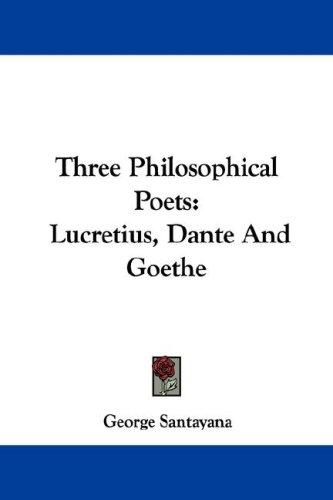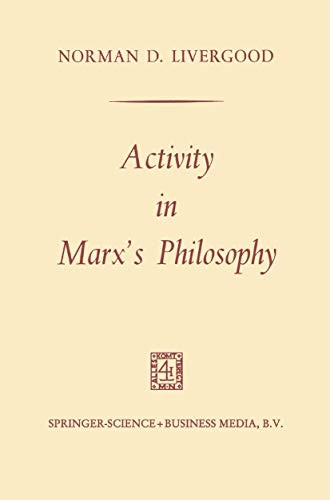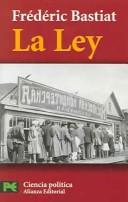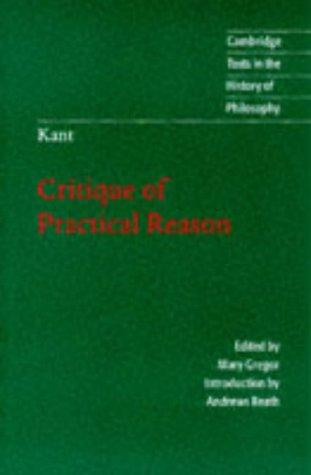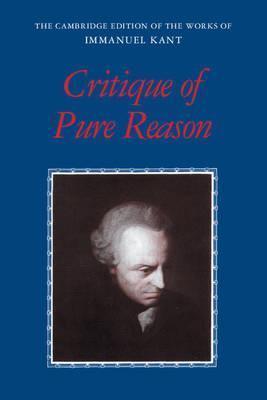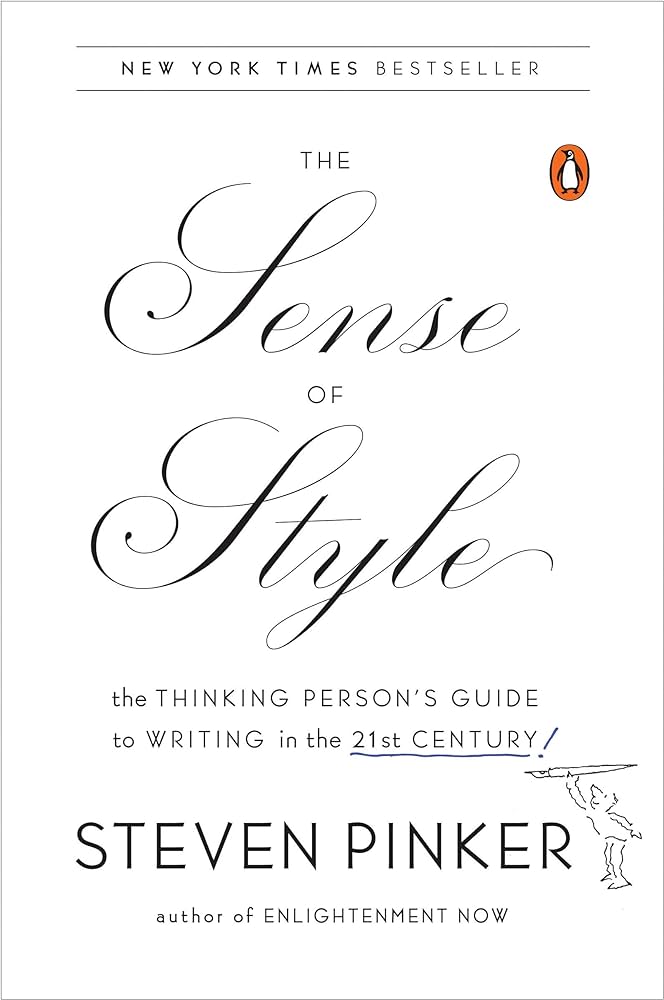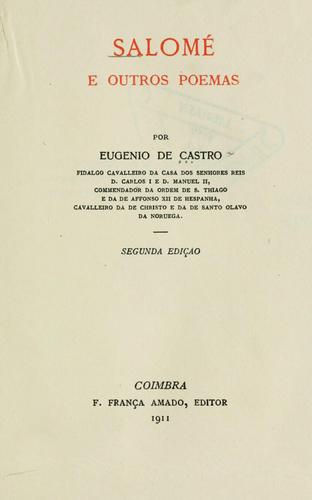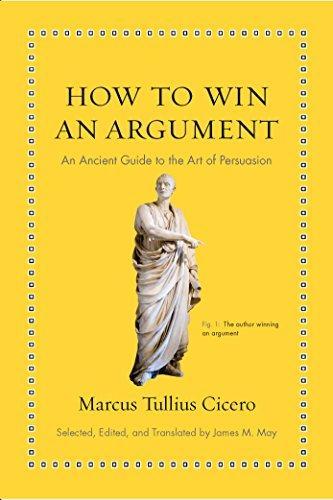Having finally worked my way through another of Kant’s Critiques, what has been my experience on this one? Well, apart from whatever else everyone has already said about it (for Kant’s works are one of the most dissected ones in the history of Philosophy), I find here more useful to explore his complete lack of clarity in regards to the way he expresses his ideas.
For this is indeed a tough read. Ok, not so tough as the ridiculously difficult Critique of Pure Reason, upon which this book builds upon. But mind that it is only a bit easier to read — if, for nothing else, because it’s a shorter work. After all, even when you’re bombarded by the recurring thoughts of asking yourself why you have started this book in the first place, at least you don’t get as desperate or as depressed as you were while reading …
Reviews and Comments
This link opens in a pop-up window
UdeRecife rated Three Philosophical Poets: 3 stars
UdeRecife rated Activity in Marx's Philosophy: 3 stars
UdeRecife rated The philosophy of poetry : the genius of Lucretius: 3 stars
UdeRecife rated Leituras de Aristóteles e de Nietzsche: 3 stars
UdeRecife rated The Communist Manifesto: 2 stars
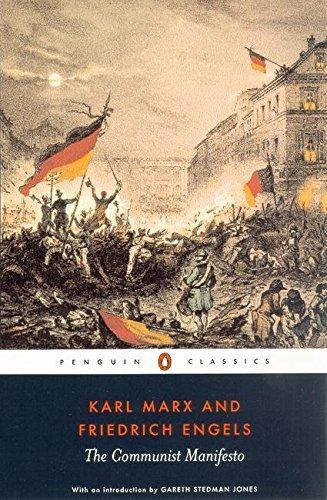
The Communist Manifesto by Karl Marx, Friedrich Engels (Penguin classics)
A rousing call to arms whose influence is still felt today
Originally published on the eve of the 1848 European …
UdeRecife reviewed Critique of practical reason by Immanuel Kant (Cambridge texts in the history of philosophy)
Review of 'Critique of practical reason' on 'Goodreads'
3 stars
Having finally worked my way through another of Kant’s Critiques, what has been my experience on this one? Well, apart from whatever else everyone has already said about it (for Kant’s works are one of the most dissected ones in the history of Philosophy), I find here more useful to explore his complete lack of clarity in regards to the way he expresses his ideas.
For this is indeed a tough read. Ok, not so tough as the ridiculously difficult Critique of Pure Reason, upon which this book builds upon. But mind that it is only a bit easier to read — if, for nothing else, because it’s a shorter work. After all, even when you’re bombarded by the recurring thoughts of asking yourself why you have started this book in the first place, at least you don’t get as desperate or as depressed as you were while reading the unbearably long first Critique (800 pages or so of the most torturing philosophical prose).
So here I again join the choir of all those that before me thought of Kant as an obscure writer. And be aware that even calling him this is an understatement. But don’t take my word on this. Let me quote you some passage at random from this book: “If enthusiasm in the most general sense is an overstepping of the bounds of human reason undertaken on principles, then moral enthusiasm is such an overstepping of the bounds that practical pure reason sets to humanity,thereby forbidding us to place the subjective determining ground of dutiful actions – that is, their moral motive – anywhere else than in the law itself or to place the disposition which is thereby brought into the maxims anywhere else than in respect for this law, and so commanding us to make the thought of duty, which strikes down all arrogance as well as vain self-love, the supreme life-principle of all morality in human beings.” (1788) How then, you ask, did he got away with it?
Well, because he deservedly managed to get famous among the philosophical circles of his time for his then new ideas on epistemology (first Critique, 1781/87), moral philosophy (this one, 1788), and aesthetics (the third Critique, 1790). And this originality of his was as good an excuse as any to put up with his complete lack of ability in making himself clear by writing. Once established as a great philosopher, the burden of making the message understandable was shifted to his readers. That being so, what can we do about it now?
Well, nothing, really. If you’re aware of Kant’s historical importance, and you need (or want) to know more about it reading directly from him, try first to know about his ideas from someone else who can map them out in a simpler, more accessible way. Then, while reading him, try at all costs to avoid the trap of feeling you’re a worthless reader. You aren’t. Kant was indeed a lousy writer. And if you think that reading Kant from others is akin to cheat, don’t worry — it's not. Kant himself was very open to the idea of having others translate his thinking to a more clear and understandable language.
Once you overcome your fears, and you manage to find the right frame of mind to cope with Kant’s complete lack of clarity, reading him almost becomes as joyful as striving to complete a very challenging task. Imagine yourself climbing Mount Everest; or running a marathon. You may not be the strongest or the fastest, but completing such a task will inevitably make you a part of a very strict group of people who have achieved something seemingly impossible to do. Kant's works are like this.
Well, at least this was my experience now that I have finished this famous second Critique. If on top of this I add what to me felt like an added bonus, that of reading directly, within its context, one of Kant’s greatest quotes, the inspired, and inspiring, “Two things fill the mind with ever new and increasing admiration and reverence the more often and more steadily one reflects on them: the starry heavens above me and the moral law within me” (1788), I can confidently confess that in some weird and twisted way I truly enjoyed this book. Maybe with the proper set of mind you can enjoy it too.
UdeRecife rated Groundwork of the metaphysics of morals: 4 stars
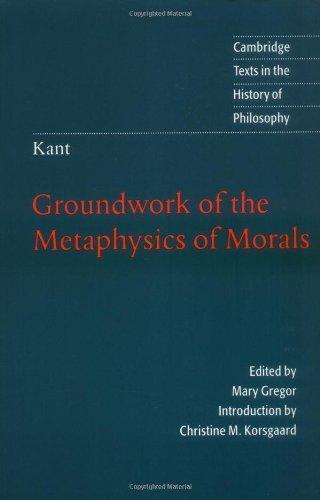
Groundwork of the metaphysics of morals by Immanuel Kant
Groundwork of the Metaphysics of Morals (1785; German: Grundlegung zur Metaphysik der Sitten; also known as the Foundations of the …
UdeRecife reviewed Critique of pure reason by Immanuel Kant
Review of 'Critique of Pure Reason' on 'Goodreads'
4 stars
Let me be completely straightforward here: this is not a review. Any attempt on my part to produce such a thing on none other than the great Critique would be a mix of hubris and dishonesty. What is this then?
Well, since reviewing this is out of question, this will be a kind of fairy-tale telling of my experience reading this monumental work. For let’s face it: just the prospect of having it all read is such a daunting task that if someone were to ask you if you would rather do this or go slay a dragon, you would probably happily choose the latter.
But jokes aside, truth is that Kant’s writing tends to be as clear as Victorian London’s famous smog. This is so much so that this opaqueness of his is almost a common trope among philosophers. So, for the purpose of my tale, what this means …
Let me be completely straightforward here: this is not a review. Any attempt on my part to produce such a thing on none other than the great Critique would be a mix of hubris and dishonesty. What is this then?
Well, since reviewing this is out of question, this will be a kind of fairy-tale telling of my experience reading this monumental work. For let’s face it: just the prospect of having it all read is such a daunting task that if someone were to ask you if you would rather do this or go slay a dragon, you would probably happily choose the latter.
But jokes aside, truth is that Kant’s writing tends to be as clear as Victorian London’s famous smog. This is so much so that this opaqueness of his is almost a common trope among philosophers. So, for the purpose of my tale, what this means is that tackling it head on, especially on this Critique, looked then more like a challenge to be overcome than an opportunity for a philosophical promenade on Kant’s ideas. So what inspired me to overcome my fears? What was the tale behind this accomplishment?
Well, it all started when I found myself a philosophy student at college, and Kant was always popping up in the course’s syllabuses in the many classes I took on the subject of modern philosophy. However, since the philosophical canon is so vast, and there’s so little time to read all of it, that if it is true that I had until now many opportunities to read Kant, it is also true that almost all of those readings were mainly fragmentary, of selected texts focusing on particular subjects, never the whole of one of the critiques.
That meant that I kind of dodged my way throughout most of college without having neither the inclination nor the obligation to read Kant in depth, least of all this Critique. What I knew about it was mostly encyclopedic common places based on what I had learned in class and the things I read here and there on secondary sources. But this was about to change.
What happened was that I was finally presented with an opportunity to enroll in a class completely dedicated to reading Kant’s first critique. This class was a seminar, so the work was to be divided in parts, and each student would be assigned a bit of the critique to present to the rest of the group. So now I was faced with a choice: I could, if I so wished, to remain a fragmentary reader of Kant, going happily about my college life without ever thinking much of it; or I could make the most of the opportunity and give the whole reading a try. Naively, I chose the latter (I’m not much of a dragon slayer anyway).
And this was how I got into reading this book in the first place. Now that I have finished it, and with that perfect accuracy that only hindsight offers, I’m pretty glad I chose to do so. Imagining philosophy as country, Kant would be one of its most important cities, and this work this city’s most splendid cathedral. And since I was more of a philosophical tourist reading it, I now at least have this selfie to show off my intellectual prowess while I bask on the superficial joy of having accomplished such a colossal task.
Now, if you were to ask me for details about what I have learned and what insights I got from this work, I would definitely start spewing some trivialities that in the end would just amount to an incoherent blabber about Kant’s epistemological ideas. But I’m not worried. Why not? Because perhaps my tourist eye allowed me to fall in love with things I noticed here and there, and since this is such a complicated work, covering a lot of ground and with many layers of interpretation, I’m now more willing to return there and appreciate once again its beauties, but now with a different regard—and, who knows, maybe I can now move there and really get to know in depth this awesome cathedral. Until then I at least have this: been there, done that. For now this will have to do.
UdeRecife reviewed The Sense of Style by Steven Pinker
Review of "The Sense of Style: The Thinking Person's Guide to Writing in the 21st Century" on 'Goodreads'
4 stars
At first, I confess, I wasn’t thrilled by it. It seemed ok, while a bit posh. But that, I think, happened, because I was not familiar with Pinker’s style. And truth is that his is a peculiar one: thoroughly backed by solid research, insightful examples and timely delivery.
In a guide about style for the 21st century thinker, Pinker shines as someone who not only has a masterful theoretical grasp of the subject at hand, but who is also a master of the craft itself. And thanks to this, the book is as easy to read as it is to understand.
The content, however, goes beyond what you would expect from such a guide. Pinker is not merely focused on the plethora of dos and donts of the writing craft, but on making you understand why this or that is preferable to some other alternative. And by doing so, …
At first, I confess, I wasn’t thrilled by it. It seemed ok, while a bit posh. But that, I think, happened, because I was not familiar with Pinker’s style. And truth is that his is a peculiar one: thoroughly backed by solid research, insightful examples and timely delivery.
In a guide about style for the 21st century thinker, Pinker shines as someone who not only has a masterful theoretical grasp of the subject at hand, but who is also a master of the craft itself. And thanks to this, the book is as easy to read as it is to understand.
The content, however, goes beyond what you would expect from such a guide. Pinker is not merely focused on the plethora of dos and donts of the writing craft, but on making you understand why this or that is preferable to some other alternative. And by doing so, you get a better sense why some conventions are to be followed while others discarded. This makes the book extremely pedagogical, adding to its usefulness.
Its 6 chapters cover a lot of ground: from what makes some piece of writing good writing to the usefulness of the classic style of prose compared with others that are less clear and less useful for intellectual purposes; from the unfortunate but inescapable trappings of knowing too much while explaining too little to the understanding of the fundamental structure of language itself; from how to strive and acheive the overall coherence required required to make the proper sense you aim at to discussing what make this or that commonly accepted rule of writing right or wrong (and you’re wrong most of the time if you think there is a right for each particular case).
Thanks to Pinker’s expertise in linguistics, his explanations as well as his understandings of the many complicated features of the English language (and languages in general) allow him to cut right through the many levels of bullshit that many think constitute a clear and precise use of language while showing you exactly how to achieve precisely that. Thanks to his warnings and by showing you what works and what doesn’t, writing may not become easy, but at least a bit less complicated.
As I’m not familiar enough either with the English language itself (for it is not my mother tongue) or with the field of linguistics, I’m not competent enough to find compromising faults on this manual. What I can do though is to share the pleasure I had in reading it, while recommending it to anyone who, like me, wants to improve her/his writing skills by [finally?] understanding why some choices are better than others. If this topic is your cup of tea, I’ll add: drink it—you won’t regret it.
UdeRecife reviewed Salomé e outros poemas. by Eugénio de Castro
Review of 'Salomé e outros poemas.' on 'Goodreads'
2 stars
Se gostei do que li, não sei sequer se gostei. Todavia, seria igualmente verdade dizer que não desgostei. Ponhamos assim: se este fosse um dos poucos livros existentes (sobrantes) no mundo e eu, aborrecido, buscasse com que me entreter, talvez o lesse com mais gosto. Felizmente para mim, ou infelizmente para o já falecido autor, não falta o que ler e desse tanto, muitos, muitos sim, merecem que o façamos com gosto.
Seja como for, este caderno de poesia não é tão mau quanto o faço parecer. Eu é que, à distância do tempo e dos interesses, não me identifico nem com os temas nem tampouco com o tratamento. Aqui e além uma ideia interessante (para mim), uma construção poética mais feliz, algo que me captura a atenção. Mas, contas feitas ao que até agora de Eugénio de Castro conheci, devo confessar que não é autor que me convença. É …
Se gostei do que li, não sei sequer se gostei. Todavia, seria igualmente verdade dizer que não desgostei. Ponhamos assim: se este fosse um dos poucos livros existentes (sobrantes) no mundo e eu, aborrecido, buscasse com que me entreter, talvez o lesse com mais gosto. Felizmente para mim, ou infelizmente para o já falecido autor, não falta o que ler e desse tanto, muitos, muitos sim, merecem que o façamos com gosto.
Seja como for, este caderno de poesia não é tão mau quanto o faço parecer. Eu é que, à distância do tempo e dos interesses, não me identifico nem com os temas nem tampouco com o tratamento. Aqui e além uma ideia interessante (para mim), uma construção poética mais feliz, algo que me captura a atenção. Mas, contas feitas ao que até agora de Eugénio de Castro conheci, devo confessar que não é autor que me convença. É com pena, já que, se tivesse de jantar com a Florbela Espanca, e querendo fazer-lhe graça, menos em comum com ela teria à conta deste meu desinteresse.
Será falta minha? Por certo que sim. Contudo, sendo que não tenho aspirações a me tornar crítico literário em geral, nem deste período em particular (fim do século XIX), não me sinto em grande perda por não me descobrir apreciador deste poeta. Talvez mais informado, mais contextualizado, pudesse eu encontrar assim o que nesta minha leitura falhou.
Mas temendo que, ao deixar aqui a minha opinião, possa influenciar negativamente alguém (o que duvido, dada a superficialidade desta minha pseudo-crítica), aviso já que melhor fazem em me ignorar e dar ao autor uma justa oportunidade. Só assim terão uma ideia precisa do que dele podem esperar.
As boas notícias: o livro, como outro que do mesmo autor revi, não é longo. Tem essa vantagem! E como os poemas aqui contidos não estão unidos tematicamente, sempre se pode ler um ou outro para conhecer o estilo sem que haja perda ao se ignorar os restantes.
Uma coisa é certa vos garanto: este livro ficará naquela parte da minha biblioteca reservada para os tomos a ganhar pó. Com sorte, e antes de me tirarem a foto da praxe do intelectual lido, corro a dar-lhes uma espanadela, devolvendo-lhes assim algum do seu perdido glamour.
UdeRecife reviewed Primaveras românticas by Antero de Quental (Clássicos da língua portuguesa -- no. 5)
Review of 'Primaveras românticas' on 'Goodreads'
3 stars
Nas Duas Palavras com que Antero de Quental prefacia esta obra, lê-se: “Se me perguntarem porque publico estes versos [...] cujo merecimento moral (salvo a moralidade íntima da intenção, a sinceridade no sentimento) é talvez ainda inferior ao merecimento literário — responderei: porque não me envergonho de ter sido moço.” Sabemo-nos assim diante não do Antero dos sonetos, do Antero que com justiça se tornou figura literária primeira no século em que viveu, mas do Antero moço que, como moço, deu azo à sua verve poética com um toque de elegância e savoir faire que prenuncia já o Antero que de renome nos ficou.
Todavia, e não só por ser moço, mas também por conta do espírito romântico de que estava tomado, alguns dos poemas têm um tanto de patético, dum querer colocar-se em bicos de pé literário, que, com franqueza, não valem o tempo que neles se gasta a …
Nas Duas Palavras com que Antero de Quental prefacia esta obra, lê-se: “Se me perguntarem porque publico estes versos [...] cujo merecimento moral (salvo a moralidade íntima da intenção, a sinceridade no sentimento) é talvez ainda inferior ao merecimento literário — responderei: porque não me envergonho de ter sido moço.” Sabemo-nos assim diante não do Antero dos sonetos, do Antero que com justiça se tornou figura literária primeira no século em que viveu, mas do Antero moço que, como moço, deu azo à sua verve poética com um toque de elegância e savoir faire que prenuncia já o Antero que de renome nos ficou.
Todavia, e não só por ser moço, mas também por conta do espírito romântico de que estava tomado, alguns dos poemas têm um tanto de patético, dum querer colocar-se em bicos de pé literário, que, com franqueza, não valem o tempo que neles se gasta a lê-los. Fosse assim toda a compilação e o livro melhor ficaria na estante a ganhar pó, merecendo o pó que o cobrisse. Felizmente, e por ser Antero, aqui e além descobrem-se já várias pérolas, anunciando aquela que será depois a sua voz, numa justa demonstração de lucidez artística que assim lhe permite romper com o outro tanto de mediocridade juvenil.
Seja como for, e havendo tanto de tão boa poesia portuguesa para se conhecer, não é grande o prejuízo de se adiar a visita a estas Primaveras para outras primaveras que nunca virão.

